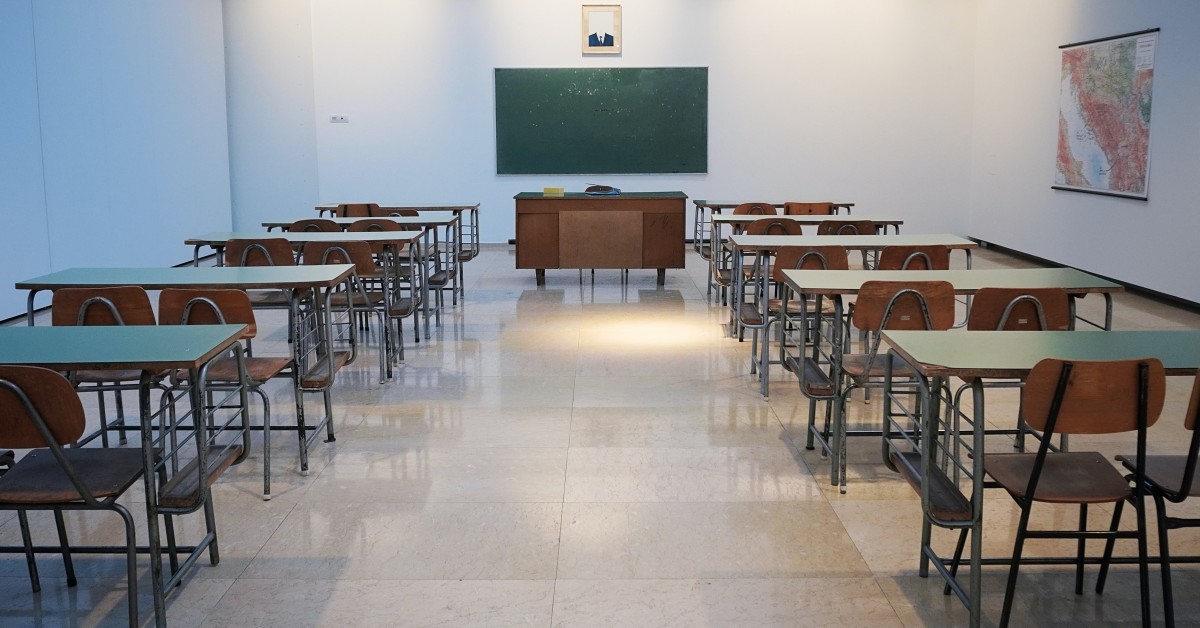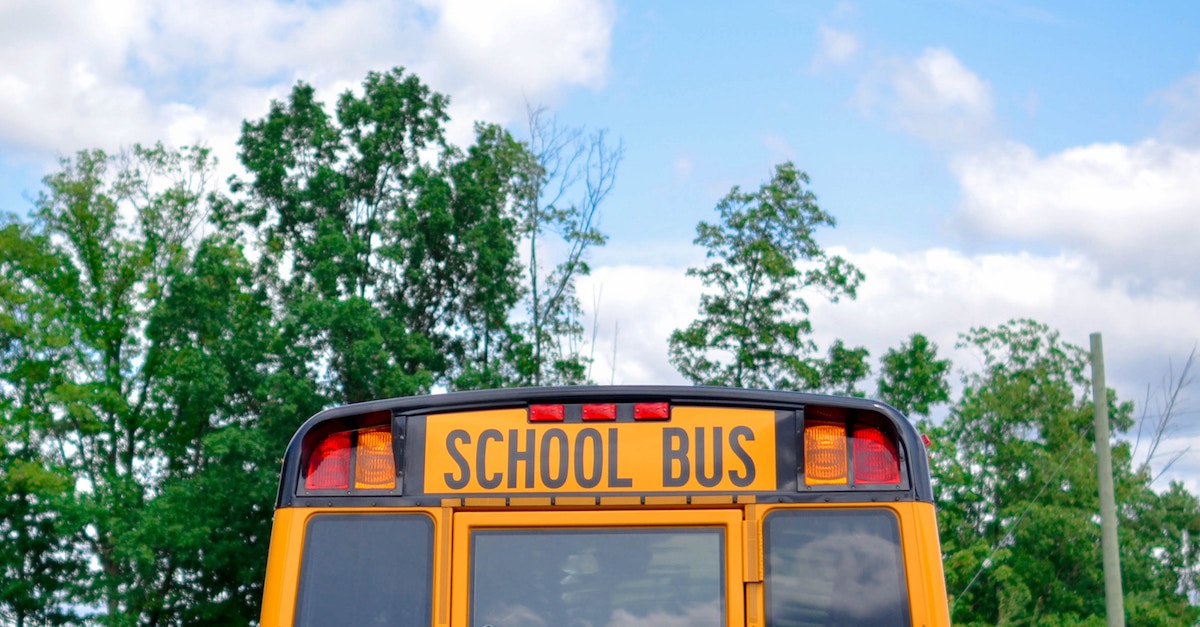
Why Black School Principals Matter
Minorities constitute over half of public school student populations, yet [...]

A school is a complex operation. Just organizing students into classes and arranging for their education—through the hiring of teachers and procurement of books and other supplies—is in itself a massive undertaking. But there is so much more: assessing student performance, evaluating and paying teachers, overseeing office staff, addressing parents’ concerns, managing utility usage, overseeing cafeteria and maintenance services… the list seemingly never ends.
A school principal supervises all of these undertakings and more. It’s a daunting task, made more so by the fact that the stakes are so high: students’ futures are literally in a principal’s hands.
In the plus column, it is also one of the rare jobs in education that pays well. How well? To learn how much school principals make, read on. In this article, we’ll cover:
A school principal supervises, and is ultimately responsible for, everything that happens in a school. The analogous position in business is the chief executive officer, or CEO. (Under this analogy, the assistant principal, or vice-principal, is the chief operating officer, or COO).
A principal’s duties include:
| University and Program Name | Learn More |
|
Merrimack College:
Master of Education in Teacher Education
|
|
|
American University:
Masters in Education Policy and Leadership
|
According to the Bureau of Labor Statistics (BLS), the average elementary, middle school, or high school principal earns an annual income of $98,420. The BLS reports that there were 292,200 principal jobs in the US in 2021; that number should increase by approximately 5 percent, creating 14,200 new jobs. As a result of retirement, attrition, transfers, and other transitions, about 23,500 school principal jobs become available each year.
BLS data also reveal that public school principals earn an average income of $98,870, considerably more than the average income of private school principals ($79,780).
These are, of course, averages. Many factors impact what an individual principal earns.
According to Zippia, the bottom ten percent of principals earn less than $71,000 in salary, while the top 10 percent of earners pull in more than $131,000. What factors account for this wide discrepancy? We’ve listed some major factors below.
In a study of principal pay in Texas, University of North Texas doctoral student Elizabeth Ann Asbury points out: “Property taxes are a major source of school financing and a measure of the wealth in a district, which means that the property tax base will have an important effect on principal salary.” Schools in affluent school districts tend to pay all employees, including principals, better than schools in less-affluent districts.
The size of a school is also a factor. Principals at larger schools have more responsibilities, and, accordingly, they tend to earn higher salaries. This is a key reason that principals at elementary schools tend to earn less than middle school principals, who in turn earn less than high school principals: the average elementary school is smaller than the average middle school, which is smaller than the average high school. According to Payscale, the average elementary school principal earns $88,500 per year. Middle school principals earn, on average, $92,600, and the average high school principal earns $93,000.
Finally, as noted above, public school principals earn roughly 14 percent more than private school principals.
Most employers require candidates for principal positions to hold a master’s degree in education leadership or education administration. The job posting website Salary.com breaks out principal earnings by highest academic degree. According to the website’s data, earning ranges for principals, by academic degree achieved, are:
Public school systems typically pay employees using a salary schedule. These schedules calculate years of professional experience into a principal’s compensation.
In Durham, North Carolina, for example, an elementary school with 900 students pays a principal with five years of experience a salary of $98,000; a principal with ten years of experience earns $101,000 at the same school, while a principal with twenty years experience earns $111,000. A high school with 1,500 students pays a principal with five years of experience $118,000; ten years, $122,500; and twenty years, $130,000.
Many school systems offer principals incentive pay if their schools meet or outperform expectations (these expectations are often keyed to a data-driven evaluation system such as the SAS Education Value-Added Assessment System (SAS EVAAS)). The Durham high school principal mentioned above, for example, would earn a bonus of $8,500 if their school meets expectations and $17,500 if their school exceeds expectations.
According to the National Center for Education Statistics (NCES), women held 54 percent of public school principal jobs in 2017-18. That’s the good news: that number was 8 percent higher than it was in 1999-2000, indicating that women are facing fewer barriers to reaching this top administrative position.
The disappointing news is that women continue to earn less than their male counterparts. In 2015-16, women principals earned an average salary of $98,300, compared to the $102,700 earned by their male counterparts. According to the data, women were more likely to serve as principals in elementary schools, where salaries are typically lower.
Whites remain a strong majority among principals (78 percent), although that number has decreased consistently over the past 20 years. Blacks make up 11 of all school principals, Hispanics and Latinos, 9 percent. Minority principals, on average, actually earn more: whites earn an average salary of $99,400, Blacks earn $101,100, and Hispanics and Latinos earn $105,100.
Qualifying for a job as a school principal requires a combination of education, licensure, and work experience. Principals typically hold a master’s degree, and most also have a minimum of five years of experience as a teacher, plus additional experience as a lower-level school administrator. In 2017-18, 17 percent of public school principals were under 40 years of age. Another 20 percent were between 40 and 44 years of age.
Although a small percentage of school principals hold no more than a bachelor’s degree (12 percent according to Zippia, 2.2 percent according to the NCES, both cited above), the majority (61.3 percent, according to the NCES) hold at least a master’s. Another 26.6 percent hold educational specialist degrees, and another 10 percent hold doctorates or their equivalent.
A master’s in education leadership is the obvious choice for prospective school principals, and it’s a good one. This M.Ed. program trains future school administrators, and it’s a popular route for principal hopefuls. A less obvious but nearly as apt choice is the Master of Business Administration (MBA), particularly if the program offers a concentration in education management. Some schools offer a combination M.Ed./MBA degree for candidates who hope to be as adept at managing the books as they are at managing staff and faculty.
If you choose to pursue the M.Ed., consider enrolling in an online master’s program. If you’re like most hopeful principals, you will want to work full-time while pursuing your graduate degree. Online study, which offers flexible scheduling and the convenience of learning at home, makes that a lot easier. Schools offering an online M.Ed. with a focus on leadership include:
Licensure and certification of principals are regulated at the state level. Requirements vary from state to state, although most states require a license of some sort. Check with your state and local department of education for your local regulations.
There is no national certification program for school principals. Over the years, the National Board of Professional Teaching Standards (NBPTS) has offered a principal certification but has always ultimately withdrawn it, and the certification is not currently available. Many top universities offer certificate programs in education leadership and other fields related to a principal’s work. They’re not the same as board certification, but they’re not without value either. Any form of professional development—especially one earned from a renowned college or university—signals potential employers that you are serious about developing your skills and advancing your career.
Getting hired as a school principal is a lot like getting hired for any high-level leadership job. You’ll need to submit an application and hope you make it through the initial screening process. If you do, you will undergo a series of interviews, first with a district-level screener, then with a search committee that may include school parents and district higher-ups. Come to your interviews prepared with concrete suggestions on how to improve the school you hope to oversee.
Education World reports that interviewers typically ask prospective principals some of the following questions:
Successful interviewees offered the following tips in an Education World article:
(Last Updated on February 26, 2024)
Questions or feedback? Email editor@noodle.com

Minorities constitute over half of public school student populations, yet [...]

Today's top educational researchers strive to make learning available and [...]

Earning an education master's degree can lead to great careers [...]

A growing number of states require master's degrees for teacher [...]

Teachers touch the lives of a few dozen students each [...]
Categorized as: Education Administration, Educational Leadership & Policy, Education & Teaching